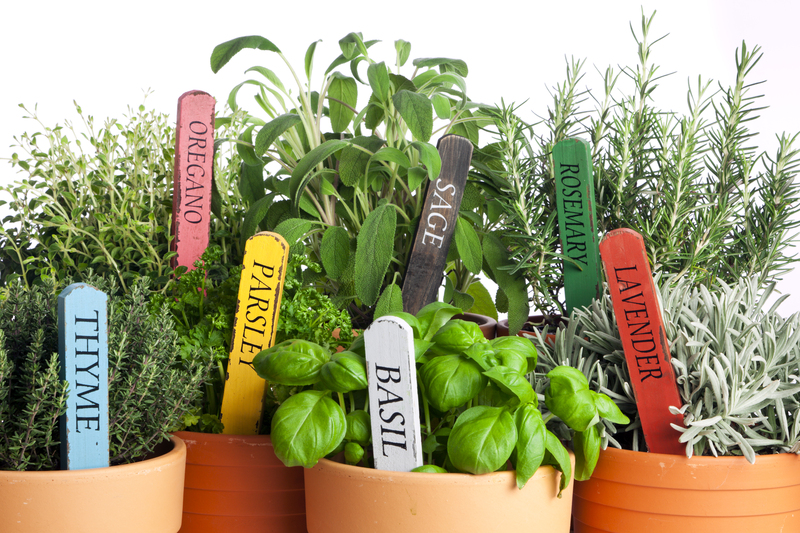Do Young People Care About Gardening?
Posted on 04/03/2025
The image of gardening often conjures up scenes of retirees in wide-brimmed hats, kneeling on padded mats and planting tulips or pruning rose bushes. However, this idyllic picture is starting to evolve. With the world increasingly prioritizing sustainability and self-sufficiency, a growing number of young people are trading in their high-tech gadgets for garden hoes. But do young people really care about gardening? Let's delve into the data and trends to find out.
The Growing Trend: Millennials and Gen Z in the Garden
In recent years, surveys and studies have revealed a shift in the demographics of gardening enthusiasts. According to the National Gardening Survey, younger generations now make up a significant portion of those engaged in gardening activities. In 2019, more than a third of millennials expressed an interest in gardening, and the numbers have only grown since then.
This surge could be attributed to various factors, including a heightened awareness of environmental issues, the rise of organic and locally-grown food movements, and the calming, therapeutic effects of gardening. The COVID-19 pandemic has also played a pivotal role, with many young people turning to gardening as a productive and satisfying pastime during lockdowns.

Environmental Awareness and Sustainability
Today's young adults are more environmentally conscious than previous generations. They are acutely aware of the impacts of climate change, deforestation, and pollution. Gardening provides a tangible way to make a positive impact on the environment. Practices like composting, growing native plants, and using organic methods help reduce carbon footprints and promote sustainability.
Urban farming and community gardens have become particularly popular among millennials and Gen Z. These communal spaces not only provide fresh produce but also foster a sense of community and collective environmental stewardship. The Farm-to-Table movement encourages the consumption of locally grown food, and many young people have taken this a step further by growing their own vegetables and herbs.
Health Benefits
Gardening offers numerous health benefits, both physical and mental. For a generation increasingly dealing with mental health issues, gardening can serve as a form of therapy. The act of tending to plants has been shown to reduce stress, improve mood, and enhance overall well-being.
Moreover, gardening provides a form of exercise that can be adapted to different levels of physical activity. From the gentle stretching involved in weeding to the more vigorous activities of digging and planting, gardening can be a full-body workout. The consumption of home-grown produce also promotes healthier eating habits, further contributing to overall health.
Social Media Influence and Online Communities
In the digital age, social media plays a significant role in shaping trends and interests. Platforms like Instagram, Pinterest, and TikTok are filled with aesthetically pleasing photos and videos of urban gardens, balcony pots, and indoor plant jungles. Influencers and online communities have turned gardening into a trendy and aspirational hobby.
There are numerous hashtags dedicated to gardening, such as #PlantParenthood, #UrbanGardening, and #GrowYourOwn, which boast millions of posts. Online forums and groups provide a space for novice gardeners to seek advice, share their successes and failures, and connect with like-minded individuals. This online support system has made the often daunting task of starting a garden more accessible and less intimidating for young people.
Technology and Innovation in Gardening
The integration of technology in gardening has also made it more appealing to younger generations. Smart gardening tools and apps can monitor soil moisture, track plant growth, and even automate watering schedules. These innovations cater to the tech-savvy nature of millennials and Gen Z, making gardening both efficient and engaging.
Businesses have capitalized on this trend by creating compact and user-friendly gardening kits that are perfect for small spaces, such as apartments and condos. Hydroponic and aquaponic systems allow for indoor gardening, making it possible to grow plants without soil and reducing the need for large outdoor spaces. These advancements have lowered the barriers to entry, making gardening accessible to more people.

Challenges and Misconceptions
Despite the growing interest, several challenges and misconceptions remain. One common misconception is that gardening requires a lot of time, space, and specialized knowledge. However, many young people are finding ways to garden within their limitations, whether it's by tending to a few potted plants on a balcony or participating in community garden projects.
Another challenge is the initial cost of setting up a garden, which can be a deterrent for younger individuals who may already be financially burdened with student loans and high living costs. However, many community programs offer resources and support, and the long-term benefits and cost savings of growing your own food can outweigh the initial investment.
Conclusion
So, do young people care about gardening? The answer appears to be a resounding yes. Driven by environmental consciousness, a desire for healthier lifestyles, and the influence of social media, more and more young people are discovering the joys and benefits of gardening. While challenges and misconceptions exist, the growing interest and innovative solutions suggest that gardening is becoming a cherished hobby among millennials and Gen Z.
As this trend continues, it holds the promise of fostering a more sustainable and health-conscious society. Gardening is no longer just the pastime of the older generation but a vibrant and evolving activity embraced by people of all ages.
Latest Posts
Essential Tools for Passionate Gardeners
Top 9 Gardening Tips for Newbies
Top Edible Wild UK Plants and Flowers



